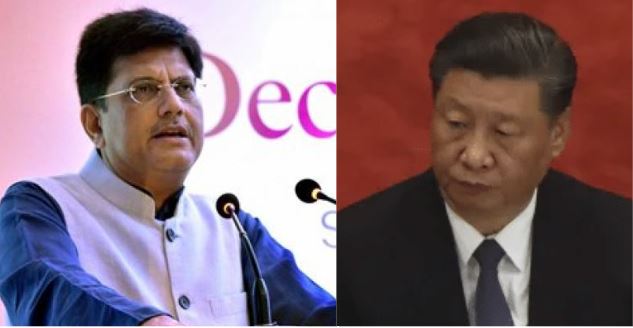After the backstabbing by China which claimed lives of 20 Indian soldiers, the Prime Minister Modi and the EAM S Jaishankar delivered a stern message to China said that this would damage the bilateral relations and Beijing would pay for its mistake.
There are growing calls across the country for boycotting Chinese goods and now the Indian government has also jumped into the fray and is ready to take revenge and send a tough message to China.
In order to hurt China, the Ministry of Commerce and Industry is fast tracking the measures to cut Chinese imports, and the findings would be presented to Prime Minister’s Office soon.
The government has decided to impose tough restrictions to 371 items- ranging from toys to electronics- worth around 127 billion dollars for import substitution and giving a nudge to Atmanirbhar Bharat. “A large chunk of these originate in China and for those goods, we will pursue import substitution,” a senior official said.
The government is seeking to boost exports to provide large scale employment to semi-skilled and unskilled labour. “China has been very effectively using non-tariff barriers to curb imports that it wants to avoid. On the other hand, it also uses these restrictions as a political tool to control bilateral relations,” said Biswajit Dhar, senior trade policy expert and professor at Jawaharlal Nehru University.
The Chinese backstabbing and provocation came at a time when India is seeking self-reliance through import substitution- and it would help India to achieve its economic goal as the government actions and citizen sentiments are in sync for the first time.
The government is expected to increase import duty on many goods and put a complete ban on import of many others. This would hit China, from whose companies India imported goods worth more than 62 billion dollars in FY 20, while exports were a mere 15.54 billion dollars- almost one fourth of imports.
For India, China is the largest import partner for the last many years, with goods above 50 billion dollars being imported every fiscal year. On the other hand, China does not give market access to Indian pharmaceutical and Information technology companies.
“China is a state enterprise-driven economy and most imports continue to be ordered by state companies. Issues of market access, primarily in agri commodities and pharma products, persist. These have to be addressed first,” said Ajay Sahai, director general, Federation of Indian Export Organisations.
The import restrictions are expected to hit imports worth around 40 billion dollars and India would drastically reduce its trade deficit with Beijing if severe import restrictions are placed.
Indian Army killed more than 40 Chinese soldiers in response to toll of 20 lives. Now Indian government is ready to give jolt of another 40 billion dollars to China for its backstabbing and treachery.
Many steps have already been taken by the other ministries like Ministry of Communications and Information Technology and Ministry of Railways.
BSNL, the state-owned telecom company, has been told to not use Chinese-made equipment in its 4G up-gradation. “The entire tender will be reworked now,” said an official.
Department of Telecom also considering told the private companies like Airtel and Vodafone, which use 25-30 percent equipments by Chinese companies like Huawei and ZTE, to reduce their dependence on the dragon.
“In the current situation, the safety and security of networks built with Chinese equipment will be under scrutiny. The ownership patterns of Huawei and ZTE could become a sticking point in India’s network upgradation plans,” said the official.
Another department which actively moved to throw Chinese companies out is Indian Railways. China Railway Signal and Communication (CRSC) Corp., which was awarded the contract to install signalling in the Eastern Dedicated Freight Corridor in 2016 for 500 crore rupees, has been told to move out as its contract has been revoked.
